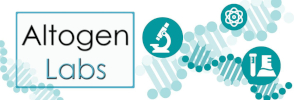Testing the anticancer efficacy of a plant extract involves a series of in vitro (using cancer cell lines) and in vivo (animal-based) experiments, as well as testing safety and efficacy. The process can be lengthy and requires adherence to scientific and ethical guidelines. Here is an outline of the general procedure:
- Plant extract preparation: The plant material should be collected, identified, and authenticated. The desired parts of the plant are then dried, ground, and extracted using appropriate solvents to obtain the extract.
- Phytochemical screening: The plant extract is analyzed to identify its active constituents, such as alkaloids, flavonoids, terpenoids, and other secondary metabolites, which may possess anticancer properties.
- In vitro cytotoxicity assays: The plant extract is tested against cancer cell lines in a laboratory setting. Common assays include the MTT (3-(4,5-dimethylthiazol-2-yl)-2,5-diphenyltetrazolium bromide) assay, the MTS (3-(4,5-dimethylthiazol-2-yl)-5-(3-carboxymethoxyphenyl)-2-(4-sulfophenyl)-2H-tetrazolium) assay, and the SRB (sulforhodamine B) assay. These tests measure the extract’s ability to inhibit cancer cell growth and induce cell death using different types of cancer cell lines.
- Mechanism of action studies: If the extract shows promising anticancer activity in vitro, further tests are conducted to understand the underlying mechanisms. These may include studies on cell cycle arrest, apoptosis (programmed cell death), autophagy, angiogenesis (formation of new blood vessels), and metastasis (cancer spreading).
- In vivo animal studies: If the plant extract demonstrates significant anticancer activity in vitro, it is then tested in animal models, typically – mice or rats. These studies help to evaluate the extract’s safety, toxicity, and efficacy in a living organism. The extract is administered to animals with tumor xenografts, and tumor growth inhibition is monitored (read more about commercially available xenograft models).
- Toxicity studies: Before proceeding to clinical trials, the safety and toxicity of the plant extract must be assessed in animals. Acute and chronic toxicity studies are conducted to determine the appropriate dosage and potential side effects.
- Clinical trials: If the plant extract exhibits promising anticancer activity and safety in preclinical studies, it may progress to clinical trials in humans. Clinical trials are conducted in several phases (Phase I, II, and III) to evaluate safety, efficacy, optimal dosing, and potential side effects in humans.
Altogen Labs provides commercially available laboratory services to test antitumor activity and associated safety profile for plant extracts and other types of test articles. Conact us at info@altogenlabs.com
